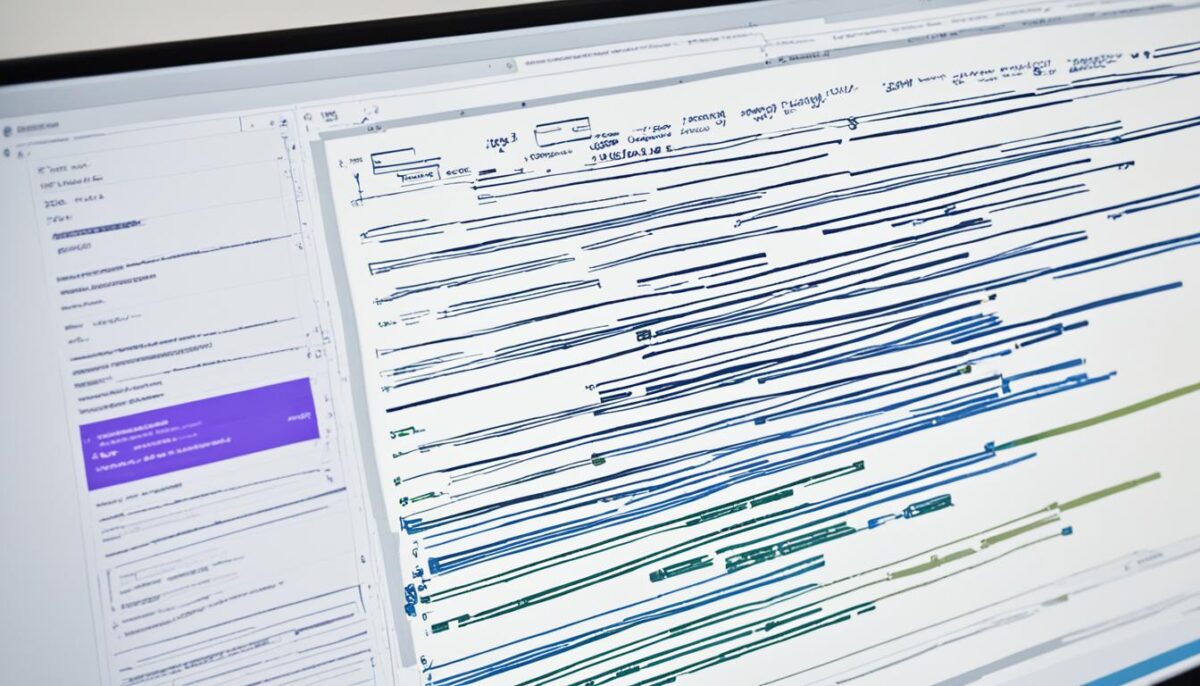Welcome to our comprehensive guide on web design cost! If you’re planning to build a website for your business or personal use, it’s crucial to understand the pricing considerations and how to budget effectively. In this article, we will explore the factors that influence web design cost and provide insights into pricing for web design. By the end, you’ll have a clearer understanding of how to budget for your next web design project.
When it comes to web design, the cost can vary greatly depending on various factors. The complexity of the website, the extent of design customization, and the functionality requirements are just a few elements that impact the overall pricing. It’s essential to understand these key elements of web design cost to estimate the budget for your specific project accurately. We will dive into these details in the following sections.
Additionally, we will discuss the specific factors that influence web design pricing, such as the size of the website, the number of web pages, the use of templates or custom designs, the need for responsive design, and additional features like e-commerce integration or content management systems. Understanding these factors will help you make informed decisions about the features and functionalities you require within your budget.
To ensure you set a realistic budget for your web design project, we will provide guidance on different cost ranges for various types of websites, average costs associated with different design features, and tips for cost management. Our goal is to help you make the most out of your investment while achieving your desired web design goals.
So, let’s dive in and explore the fascinating world of web design cost, pricing for web design, and budgeting for web design!
Understanding the Elements of Web Design Cost
When it comes to estimating the cost of a web design project, it’s important to consider the key elements that contribute to the overall pricing. By understanding these factors, you can better plan for the budget and ensure that you get the best value for your investment.
Website Complexity
The complexity of a website plays a significant role in determining its cost. A simple, straightforward website with fewer pages and minimal functionalities will generally be more affordable compared to a complex website with intricate design elements, advanced features, and multiple integrations.
Design Customization
The level of design customization you require for your website can also impact the overall cost. While using pre-designed templates can help save costs, opting for a fully customized design tailored to your brand’s unique identity may increase the price due to the additional time and effort involved.
Functionality Requirements
The functionalities and features you need for your website will affect its cost. Basic websites with standard features such as contact forms and image galleries are typically less expensive than websites that require advanced functionalities like e-commerce capabilities, user registration, or content management systems.
It is crucial to carefully consider the necessary functionalities for your website, ensuring they align with your business goals and target audience.
Mobile Responsiveness
In today’s mobile-driven world, having a mobile-responsive website is essential. The inclusion of responsive design elements that adapt to different screen sizes and devices can impact the overall cost.
Content Management
If you require a content management system (CMS) to easily update and manage your website’s content, it may increase the cost. CMS allows you to make changes to your website without the need for coding knowledge, giving you more control and flexibility.
However, keep in mind that the complexity of the CMS and the features it offers can influence the cost.
Additional Features
Lastly, any additional features or integrations you require for your website, such as social media integration, search engine optimization (SEO) tools, or third-party software integration, may impact the overall cost.
It’s important to carefully assess your needs and prioritize the features that are essential for achieving your website’s objectives within your budget.
| Key Elements of Web Design Cost | Factors Affecting Web Design Pricing |
|---|---|
| Website Complexity | Level of design customization |
| Functionality Requirements | Mobile Responsiveness |
| Content Management | Additional Features |
Factors Influencing Web Design Pricing
When considering the cost of web design, it’s crucial to understand the factors that influence pricing. By evaluating these factors, you can make informed decisions about the features and functionalities you require while staying within your budget. Let’s explore the key considerations when determining web design pricing.
Website Size and Complexity
The size and complexity of your website play a significant role in determining the cost. Larger websites with more pages and intricate functionality require more time and effort to design and develop. A complex website may involve custom coding, advanced integrations, or intricate design elements, which can increase the overall cost.
Templates vs. Custom Designs
Another pricing consideration is whether to use pre-designed templates or opt for a custom design. Utilizing templates can be a cost-effective option, as they provide a ready-made framework that can be customized to suit your brand. On the other hand, custom designs offer a unique and tailored user experience, enhancing your brand identity but often come with a higher price tag due to the additional time and expertise required.
Responsive Design
In today’s mobile-driven world, responsive design is essential for providing users with seamless browsing experiences across devices. Implementing responsive design ensures that your website adapts to different screen sizes, improving user engagement and search engine rankings. However, the inclusion of responsive design can impact the overall cost, given the additional design and development efforts required.
E-commerce Integration and Content Management Systems
If your website requires e-commerce functionality or complex content management systems (CMS), the cost may increase. E-commerce integration involves setting up product catalogs, shopping carts, payment gateways, and order management systems. Similarly, advanced CMSs allow you to manage content efficiently, but their implementation and customization can add to the overall pricing.
Understanding these factors will help you navigate the web design pricing landscape and make informed decisions about your project. Let’s move on to the next section to explore how to set a budget for your web design project.

Setting a Budget for Your Web Design Project
When planning your web design project, one of the most important aspects to consider is budgeting. By setting a realistic budget, you can ensure that you get the best value for your investment without compromising on quality. Here are some key steps to help you effectively manage the costs of your web design project.
Firstly, it’s essential to understand the different cost ranges associated with various types of websites. For small business websites, the budget may vary depending on the complexity and number of pages required. Corporate websites often involve more intricate design elements and customization, which can increase the cost. On the other hand, e-commerce websites typically have additional features such as product catalogs, shopping carts, and payment gateway integrations, which can impact the overall budget.
Another factor to consider is the average cost associated with different design features. Custom designs and unique branding elements may require a larger budget, while utilizing pre-made templates can often be a more cost-effective option. Responsive design, which ensures your website looks great on different devices, should also be factored into your budget. By analyzing these design features and their associated costs, you can prioritize what is most important to your web design project.
To effectively manage costs, consider working with an experienced web design agency or freelancer who can provide guidance and advice throughout the process. They can help you navigate potential budgetary challenges, suggest alternative solutions, and provide professional insights to ensure your web design project stays within your allocated budget.



